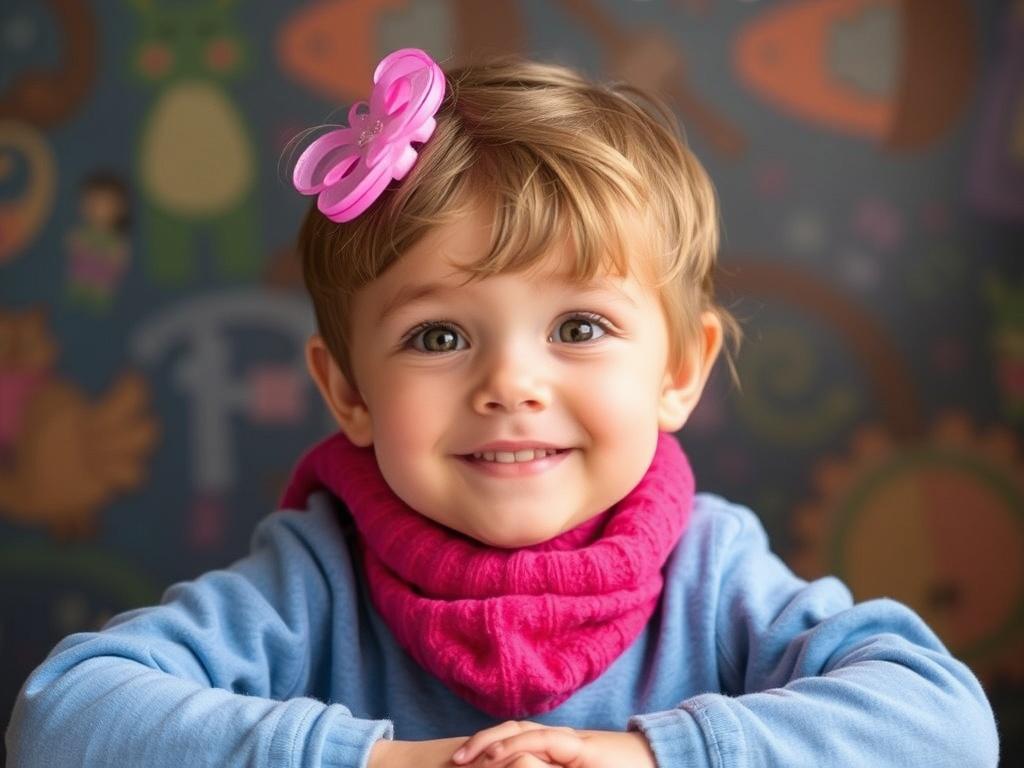SQLITE NOT INSTALLED
Gifted children present unique and exciting opportunities for families, educators, and communities alike. These young minds often possess abilities and talents that far exceed typical developmental milestones. However, understanding how best to support gifted children requires thoughtful consideration, patience, and knowledge. This article aims to explore every facet of gifted children’s development and learning, providing practical advice and insights on how to support their needs effectively.
Understanding Gifted Children: Who Are They?
The term “gifted children” refers to youngsters who demonstrate exceptional ability or potential in one or more areas—whether intellectual, creative, artistic, or leadership. It’s important to realize that giftedness is not a one-size-fits-all label. These children can excel in different domains, and their abilities might manifest in various ways.
For instance, some gifted children might show early proficiency in reading or mathematics, while others might have extraordinary creativity or emotional depth. Recognizing giftedness can sometimes be challenging, especially when a child’s talents are uneven or hidden by other issues such as social anxiety, learning disabilities, or even cultural factors.
Supporting gifted children means embracing their unique attributes while providing them with an environment that nurtures their growth without overwhelming them.
Characteristics of Gifted Children
- Advanced cognitive abilities
- Heightened curiosity
- Intense focus on interests
- Rapid learning pace
- Emotional sensitivity
- Strong problem-solving skills
- Preference for complex tasks
- Heightened creativity and imagination
- Early development of language skills
These traits can be wonderful assets, but without proper support, gifted children might feel misunderstood or even frustrated. Therefore, understanding and supporting gifted children’s needs is crucial to their well-being and growth.
Why Supporting Gifted Children Matters

Many people assume that gifted children will naturally succeed without much intervention because of their abilities. While it’s true that these children have great potential, gifts alone do not guarantee happiness or lifelong success. Without encouragement, appropriate challenges, and emotional support, gifted children may struggle with boredom, social isolation, or perfectionism.
Supporting gifted children fulfills several important purposes:
- Prevents boredom and disengagement: When gifted children are not challenged enough, they may lose interest in learning altogether.
- Encourages social development: Gifted children sometimes feel different from their peers, so social and emotional support is vital.
- Enhances skills and talents: Proper guidance and opportunities help gifted children hone their abilities.
- Builds confidence and resilience: Gifted children need positive reinforcement and strategies to manage challenges and setbacks.
- Fosters a love for lifelong learning: Support helps shape a healthy attitude toward learning, curiosity, and creativity.
In essence, supporting gifted children is not just about pushing academic achievement but nurturing a balanced and fulfilling childhood that respects their unique nature.
Identifying Gifted Children: Early Signs and Assessment
Detecting giftedness early enhances the ability to provide the right support when it counts. Parents, teachers, and caregivers need to be aware of the indicators that a child might have exceptional abilities.
Some early signs include rapid language development, exceptional memory, advanced problem-solving, and intense focus. Gifted children often ask profound questions and show deep curiosity across various fields.
Common Signs in Gifted Children
| Domain | Potential Signs of Giftedness |
|---|---|
| Cognitive | Early reading ability, large vocabulary, rapid learning, and abstract thinking |
| Creative | Original ideas, curiosity, problem-solving using innovative methods |
| Social/Emotional | Empathy beyond age, intense sensitivity, preference for older peers or adults |
| Physical/Motor | Advanced coordination, early development of physical skills |
Formal assessment may include intelligence testing, achievement tests, creativity assessments, and behavioral observations from both home and school settings. It’s important to combine these tools with a holistic understanding of the child to avoid missing non-traditional signs of giftedness.
Challenges Gifted Children Face
While gifteds’ capabilities are a wonderful advantage, there are certain challenges they often encounter. Understanding these barriers is essential to providing the correct support.
Common Challenges
- Boredom and Lack of Challenge: Standard classroom activities may not engage them, leading to frustration.
- Perfectionism: Gifted children might set impossibly high standards and struggle with mistakes.
- Social Isolation: Feeling different can cause difficulties in forming friendships.
- Asynchronous Development: Intellectual skills may outpace emotional or physical growth, making peer interaction complex.
- Underachievement: Sometimes gifted children may deliberately perform below their potential to fit in or avoid pressure.
- Emotional Intensity: Heightened sensitivity can lead to anxiety or mood swings.
These challenges make it clear that gifted children require support not only academically but emotionally and socially as well.
How to Support the Academic Needs of Gifted Children
Academically supporting gifted children involves creating learning experiences that are both meaningful and appropriately challenging. Here are several strategies parents and educators can use.
Accelerated Learning
Acceleration allows gifted children to move through traditional curricula more quickly or skip grades when appropriate. It prevents boredom and ensures children engage with material that fits their level.
Enrichment Programs
Enrichment adds depth to learning by exploring subjects beyond the standard curriculum without necessarily moving faster. Examples include specialized workshops, clubs, or project-based learning.
Differentiated Instruction
Teachers can adapt lessons to suit diverse learning needs within a classroom. This personalization supports engagement and mastery for gifted children alongside their peers.
Independent Study
Allowing gifted children to pursue interests on their own terms encourages ownership of learning and creativity.
Table: Academic Support Techniques for Gifted Children
| Technique | Description | Benefits |
|---|---|---|
| Acceleration | Moving faster through educational material | Prevents boredom, matches ability level |
| Enrichment | Deepening understanding through extra challenges | Fosters creativity and deeper interest |
| Differentiated Instruction | Customizing teaching to learner needs | Supports diverse learners in one classroom |
| Independent Study | Self-guided exploration of interests | Builds autonomy and creativity |
Emotional and Social Support Strategies
Gifted children’s emotional and social needs deserve just as much attention as their academic growth. Developing emotional intelligence and social skills helps them navigate the world successfully.
Encouraging Emotional Awareness
Help gifted children recognize and express their feelings in healthy ways. Validating their emotions and providing coping strategies for stress or frustration can prevent emotional overwhelm.
Facilitating Peer Interaction
Encourage participation in group activities or clubs that match their interests. This can boost social skills and provide a sense of belonging.
Modeling and Teaching Social Skills
Role-playing social scenarios or talking through conflicts helps gifted children develop empathy and friendship skills.
Allowing Time for Downtime
With intense curiosity and mental activity, gifted children can easily become exhausted. Providing quiet, unstructured time supports emotional balance.
Parenting Gifted Children: Tips for Families

Parents play a critical role in supporting gifted children. Here are some practical tips for families on this rewarding journey:
- Advocate for your child: Work with educators to obtain proper assessments and accommodations.
- Encourage curiosity: Provide books, resources, and experiences that nourish your child’s interests.
- Balance expectations: Maintain high but reasonable standards to reduce pressure.
- Promote social opportunities: Arrange playdates or clubs with like-minded peers.
- Support emotional well-being: Listen actively, validate feelings, and teach coping tools.
- Respect individuality: Giftedness looks different in every child—celebrate their unique gifts.
Common Questions Parents Ask
| Question | Answer |
|---|---|
| Should my gifted child skip a grade? | It depends on the child’s readiness academically and emotionally; consider assessments and advice from educators. |
| How do I help my gifted child who feels isolated? | Find social groups, clubs, or programs for gifted children, and encourage friendships with age peers sharing similar interests. |
| What if my gifted child doesn’t like school? | Explore whether the curriculum is too easy or disconnected from their interests; enrichment or alternative learning methods may help. |
Supporting Twice-Exceptional (2e) Gifted Children

Some gifted children face additional challenges because they are “twice-exceptional” (2e), meaning they have both giftedness and a learning difference or disability such as ADHD, dyslexia, or autism spectrum disorders. Supporting these children requires a dual focus on enhancing their strengths while addressing their difficulties.
For 2e children, collaboration among parents, educators, and specialists is critical to create individualized plans. Attention to both academic accommodations and emotional support helps these children thrive without feeling overwhelmed by their challenges or their gifts.
Gifted Children and Technology: Opportunities and Risks
In our digital age, gifted children have access to an unprecedented wealth of information and creative tools. Computers, tablets, and the internet can enrich their learning and provide avenues for exploration and self-expression.
Opportunities:
- Access to advanced educational resources and courses
- Ability to connect with peers worldwide who share interests
- Tools for creativity such as coding, digital art, and writing platforms
Risks:
- Overexposure leading to screen fatigue or distraction
- Risks of online safety and privacy
- Potential social isolation if technology replaces in-person interaction
Parents and educators should guide gifted children in using technology productively and mindfully, setting reasonable boundaries while encouraging investigation and creativity.
The Role of Schools in Supporting Gifted Children
Effective support for gifted children often depends heavily on schools. Educational systems vary widely in their recognition and services for gifted learners. Advocating for specialized programs, inclusive classrooms, and professional development for teachers can make a huge difference.
Key School-Based Approaches
- Gifted and Talented Programs: Specialized classes or pull-out sessions focusing on advanced material.
- Individualized Education Plans (IEPs) or 504 Plans: Tailored learning goals that accommodate the child’s strengths and needs.
- Professional Training: Educating teachers about gifted education strategies.
- Collaboration: Coordinated efforts among educators, parents, and specialists.
Conclusion: Nurturing the Gifted Child’s Potential
Supporting gifted children is a multifaceted endeavor that requires attention to their academic, emotional, social, and psychological needs. It is essential to provide enriching challenges, emotional support, and opportunities for meaningful social interaction. Recognizing each gifted child’s unique profile allows caregivers and educators to tailor their approaches and nurture a thriving, joyful, and balanced individual.
Gifted children have tremendous potential to contribute to the world in extraordinary ways. By understanding their needs and providing thoughtful support, we empower them to grow not just as learners, but as compassionate, resilient, and well-rounded human beings.
Whether you are a parent, teacher, or simply curious, learning about gifted children and how to support their needs is an investment that can lead to lifelong benefits—for the child and society alike.
